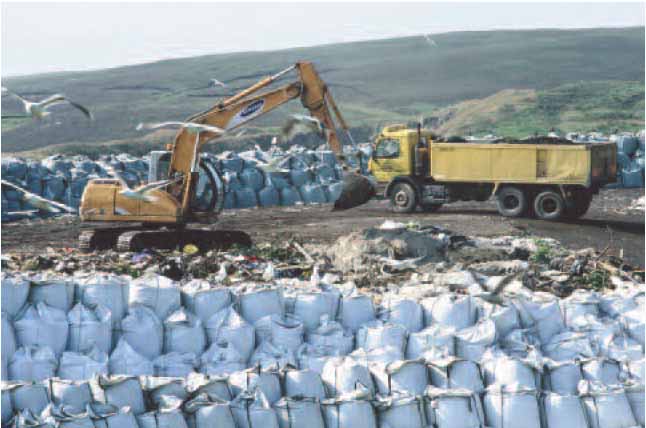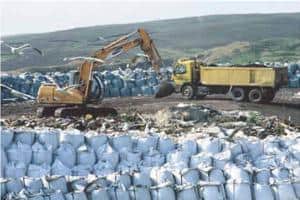Published today, the programme looks at specific actions to improve Scotland's existing waste management licensing system, which would involve streamlining the system in a move similar to the introduction of the Environmental Permitting Programme in England. (see letsrecycle.com story)
Kenny Boag, head of SEPA's waste policy unit, said: “Our programme has been jointly developed with the Scottish Government to improve the system for control of waste. It is intended to deliver a high quality modern and effective approach to regulation, reduce waste production, protect the environment from the impacts of waste production and promote safe reuse and recycling of waste.”
Permits
Under the consolidation plans, the Pollution Prevention and Control permits will be subject to a new form of compliance assessment from 2008/09, and Waste Management Licenses (WML) and Controlled Activities Regulation set to follow in 2009/10.
SEPA said that it will look to achieve an “efficient and risk-based approach to waste management regulation” through site inspections and compliance assessment, in a bid to ensure that a minimum of 90% of WML comply with assessment schemes before the new compliance method is introduced in 2009/10.
The consultation – entitled the Better Waste Regulation – did receive feedback from people who feared that the consolidation of waste management licensing would lead to inconsistencies with the rest of the British Isles.
However, the Scottish Government was firm in its response, and stated in the summary report: “The Scottish Government points out that environmental policy is devolved and therefore it is for the Scottish Parliament to make regulations that suit exclusively Scottish conditions and priorities.”
Initial action
Following the publication of the new action programme, SEPA has already moved to address some concerns raised in the consultation with the introduction of electronic registration for licensing exemptions and allowing information to be accessed more easily by redesigning the SEPA homepage.
And, the Scottish Government and SEPA have agreed to consider the possibility of SEPA taking responsibility for drafting and issuing exemptions, which would see existing exemptions examined to include considerations from the consultation.
With regards to initial developments, the document stated: “There are a number of ‘quick wins', but some of the main issues will require further public consultation – often following the development of detailed options.”
Corporate plan
The overhaul of the waste management licensing regulation comes in the wake of last week's (August 8) publication of SEPA's corporate plan, which showcased the organisation's goals and priorities in managing waste, air quality, water and other fields for the period 2008-2011.
The corporate plan also revealed the organisation's intention to work alongside the Government by pledging to provide input to the Zero Waste Think Tank when asked and offer technical support towards the review of the National Waste Plan.
Speaking in the executive summary, SEPA chief executive, Campbell Gemmell, said: “SEPA's role is to contribute to Scotland's economic success by protecting and improving the environment. This plan describes our approach to achieving that aim, and it is underpinned by a strong emphasis on working closely with all our customers to enable success for them and Scotland.”
SEPA currently contributes to the Government's objectives for the environment by helping to create the conditions for sustainable economic growth in Scotland through being, in its own words, “an efficient, effective and enabling regulator.”
Targets
SEPA hopes to improve household and industrial waste collection data, which is currently limited in commercial and industrial waste, and use the new data to set “meaningful targets, initiatives and policies” to tackle the effect of waste on the Scottish environment.
Targets within the corporate plan also show the organisation's intention to develop intelligence that will improve the targeting of illegal waste activity (such as fly-tipping) over the next three years, determine cost-effective measures to address environmental crime and ensure that the objectives of the National Waste Strategy are reflected in local and national planning policies when it comes to new developments.













Subscribe for free